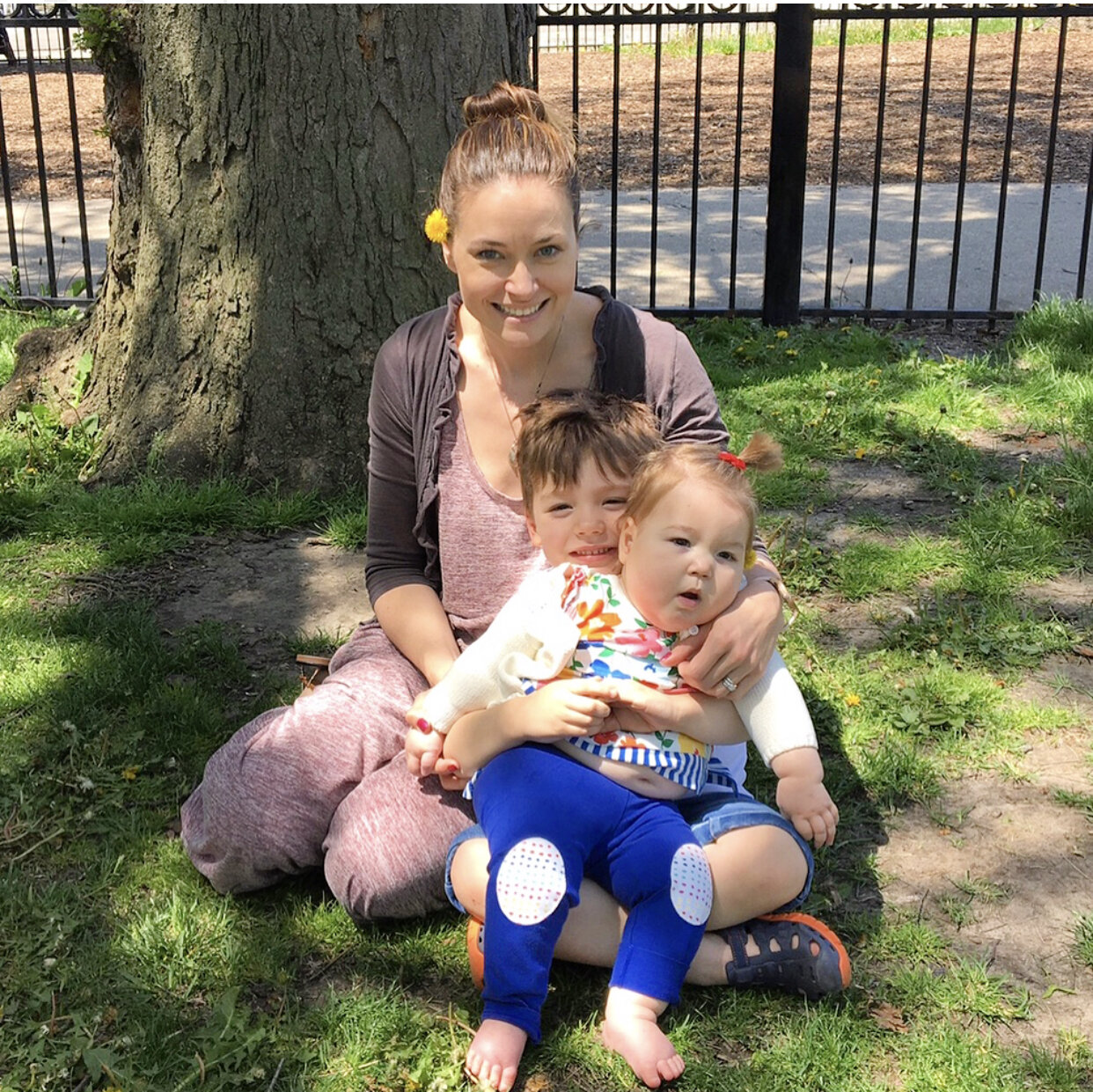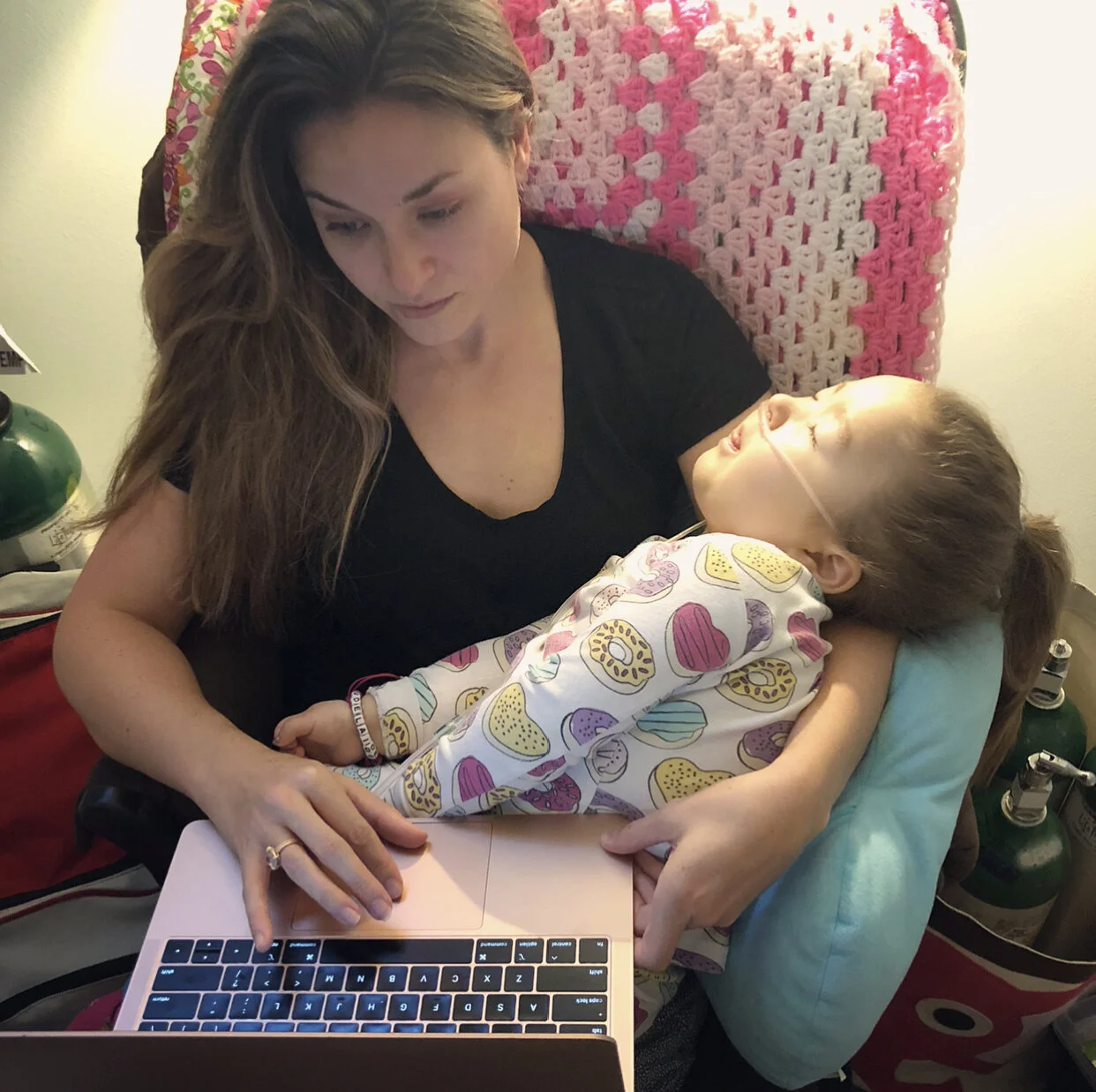More than words
Photo of Chicago skyline taken from Rush University Hospital during one of Adelaide’s admissions
Please excuse me for a blog post while I take out my soap box. I promise to get back to regularly scheduled special-needs/grief/recovery programming next week but something is eating at me and I need to get it off my chest. We have grown accustom to using words associated with war to describe this pandemic: front line, hero, battle, etc. It is easy to call our frontline workers heroes, it even makes us feel good to acknowledge them as such. Without our delivery people, without the individuals stocking shelves, without our civil employees, our infrastructure would fall apart. But there is a huge difference between our enlisted soldiers and our front line workers: our soldiers signed up with a general idea of what they were getting themselves into and trusting that their government would provide them with the best protective gear in the world. I strongly doubt that anyone who applied to work at their local grocery store had any idea that they would be risking their life armed only with a price tag sticker gun. Are these people acting heroically? ABSOLUTELY and we are so grateful that they are going to work everyday. I only hope that their employers are providing them with masks to protect each other and that when customers enter the store they show the workers the respect and honor they deserve by also wearing masks to protect everyone around them.
But this isn’t a post pleading with you to wear a mask when in public, though you absolutely should and not wearing one is completely and totally selfish. No, this is a plea to make sure we are providing more than lip service gratitude to those that are witnessing the worst this virus has to offer. We have heard the stories over and over on the news about the nurses and doctors who are sitting with a patient while they take their last breath, then moving on to the next room trying to save the life it holds without a moment to process the last. We have listened to these first hand accounts and thanked these medical professionals profusely. We have rightly called them heroes and compared them to soldiers defending our country from this evil viral invader. But if we are going to make these comparisons then it is time that we treat these professionals like the soldiers they are. Post traumatic stress disorder is already rearing its ugly face in our hospitals and we should be getting in front of it. I was devastated to hear about a New York ER doctor who took her own life - but I was not surprised. Unless, we take proactive steps, she will not be the last either. What are our states doing to take care of these valued citizens?
Dr. Fauci said that he is nearly certain that there will be a second wave of Covid-19 this winter. Barring a scientific breakthrough, we will not yet have a vaccine. This means that we will be putting our battered troops right back into battle without the care that they deserve. Look, I admittedly have a soft spot for doctors, nurses and all hospital workers: from the security officers to the custodians to the food service workers. When you spend enough time in a hospital you start to know folks by name. They are more than a face behind a mask. Without the medical support at thirteen different hospitals in seven different states, not to mention the incredible assistance we received in our own home, we would have lost Adelaide much sooner than we did. Maybe, it’s because after standing by in trauma rooms watching my daughter be resuscitated, not to mention having resuscitated her myself several times, I understand what PTSD feels like.
COVID-19 may be a novel virus but battling pandemics is not. There is PTSD history and data available from battles with ebola that can, and should, be referenced to make plans of care now. Dr. Shaili Jain wrote in Psychology Today that “There is a dire need for systematic action to combat the mental health burden Covid-19 is placing on frontline health care personnel. For such actions to succeed requires more than lip service, trite words of sympathy and rhetoric, rather a long-term commitment to resources, funds and unequivocal societal support is what is needed.” So, my question is this: where in the plans to reopen each state is the mental health care for the people we call heroes? If we don’t make sure our medical professionals are taken care of now, then how can we expect them to perform at the top of their game and save our lives when thrown into battle again? Spoiler alert: we can’t.




